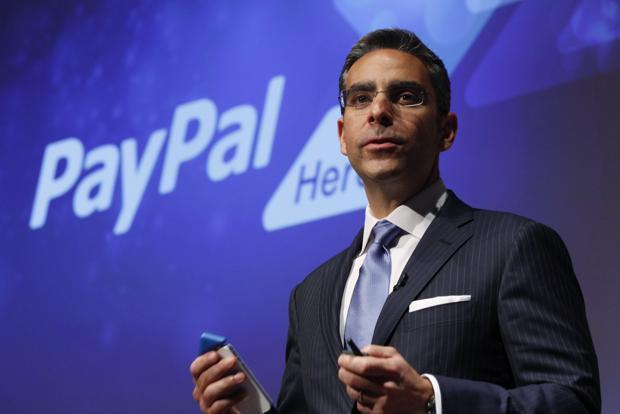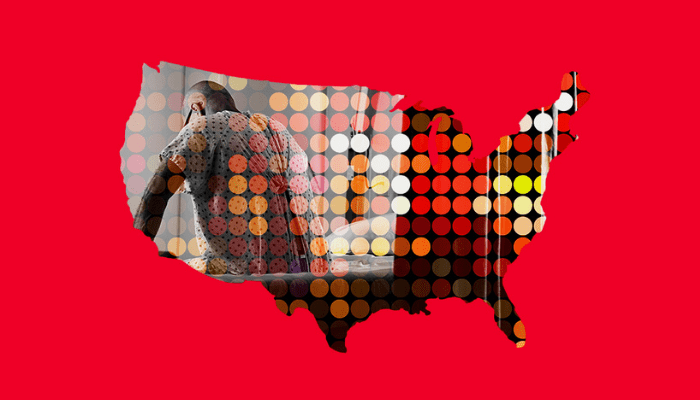When Mark Zuckerberg asked him to dinner last year, David Marcus assumed it was to discuss a possible business partnership. But the Facebook founder and chief executive “had another conversation in mind”, he recalls.
The billionaire was there to offer Marcus the chance to lead a team that was a fraction of the size of the 15,000-strong army he commanded as head of PayPal, swapping the title of president for the lesser one of vice-president, messaging products in the process. It did not take him long to say yes.
Forget any thought of demotion. Marcus was seduced by what he calls a “once-in-a-generation opportunity” to transform Facebook’s Messenger tool into “a new platform at the scale of billions of people”. And after 15 months in charge, he is delivering on some of this Silicon Valley hyperbole.
Now a standalone product, Messenger has grown from 300m to 700m monthly active users and is no longer simply a text message replacement service that helps Facebook keep users from straying to rival chat apps.
Its expansion has included the launch of a service aimed at improving the ability of retailers and other companies to interact with customers via the Messenger app. In August he launched a trial of M, a virtual assistant that combines human and artificial intelligence to service users’ whims.
Sitting beneath a poster of an angry, anthropomorphic burger — an emoji, or symbol, that can be sent on Messenger — in his personal conference room at Facebook’s Menlo Park headquarters, Marcus says the nature of his current job is very different to his previous role.
“It is no secret that while I was running PayPal, I was operating a pretty big, deep, cultural shift, and at the scale of 15,000 plus people, it is not easy every day. So you spend 90 per cent of your energy and your time just rewiring the culture.”
At PayPal, he once scolded employees for not installing their own app — a faux pas that is less likely to occur at Facebook’s growing “family”, where workers enthusiastically embrace the social network as a way of life.
He has a favourite emoji — a ninja — which he often sends to his team when they are doing a good job, and he is often seen in a Messenger T-shirt. Today, he is in a pale blue shirt, dark jeans and expensive-looking shoes.
Eager to return to his roots as an entrepreneur, he says it felt “natural” to be experimenting with a new product and a nimbler team of 200, albeit with the resources of one of the world’s largest technology companies behind him.
“Here I spend really 90 per cent of my time not focused on how we’re going to do the things we need to do, but rather, what are the best things we can do to advance the product and to create more experiences for people,” he says.
“To delight” is a verb almost as in vogue in Silicon Valley as “to disrupt”, but the M virtual assistant does have eye-catching potential. Only a few hundred Bay Area residents are trialling it, to get a broken-down car towed, say, or to research childcare options. But some industry experts have hailed it as a potential replacement for search engines.
“It is fascinating how people outside tech companies can label those things as way bigger than how we see it,” Marcus says, before declaring that the company does indeed have “big ambitions”.
For now, its challenge is mastering a “completely novel approach” to artificial intelligence. Unlike rivals Siri and Cortana, M uses both an algorithm and a team of people to process requests. Instead of just finding information, it can take action: making reservations at a restaurant, for example.
If the machine is unsure whether it is able to complete the task by itself, it forwards it to a human. The algorithm learns from what the human does, meanwhile, and gets cleverer by the day.

Marcus likes to use M to send thank-you gifts like flowers. He rejects any idea that the AI tool will outgrow its human helpers rapidly: “I think humans will be involved for a very long run — even the very, very long run.”
He is cautious, however, saying it is “very early days”, but remains confident that what they are trying to achieve is far more useful than Apple’s Siri, Google Now or Microsoft’s Cortana. He claims these voice-powered assistants are “not very useful, but very scaleable”, while M is “extremely useful, but not very scaleable”. The challenge is to make M both.
Artificial intelligence is a long way from buying and selling Swatch watches, Marcus’ first business as a teenager growing up in Switzerland. Most of his former classmates work in finance, but he followed a less typically Swiss path: learning basic code aged eight, dropping out of university in Geneva and starting his first tech company. He ended up doing premium SMS voting for television shows including Nouvelle Star in France and Pop Idol in the UK.
Moving to Silicon Valley in 2008 has proved to be the right decision, Marcus says in his American-inflected English. “I always felt that if you wanted to really have an impact and make it big, you had to come here,” he says.
It is hard to grow a technology company in Europe, with less venture capital, many more languages and a substantial bureaucracy, he says, before adding that the UK and Berlin are exceptions.
He wishes Europe would welcome more innovation in technology rather than adopting a protectionist approach and creating complex regulations that change across borders.
The current situation “is actually persuading local European entrepreneurs to come here, which is very unfortunate”, he says. Marcus is not an unabashed cheerleader for Silicon Valley, however. He is concerned there could be a “mini-bubble” in funding for late-stage private companies and warns that the valuations that hit the headlines are not necessarily as transparent as they would be in the public markets. “I think that the public markets are pretty healthy. I think the valuations of some of the late-stage private companies are problematic in some ways.”
Facebook is well loved by Wall Street: its shares are up more than 150 per cent since it listed in 2012 and revenue is forecast to grow 38 per cent this year to $17.2bn.
Facebook Messenger will provide a new revenue stream when it begins to make money, most likely by using Messenger for Business to charge retailers to get back in contact with past customers with promotions or suggestions about products they might have run out of.
How Messenger makes money could provide an important role model for the other messaging service owned by Facebook. WhatsApp, bought last year for $22bn, is run independently by its founders Jan Koum and Brian Acton from an office in neighbouring Mountain View.
Marcus meets them regularly, though not over a European-style lunch, he notes sadly. If he pulls off the monetisation of Messenger, he could extend his influence to another almost 1bn-or-so people on WhatsApp.
“Hopefully we’ll find something that works as far as an eventual business model for both of us,” he says. “But TBD [to be decided] at this point in time.”
Culled from FT








